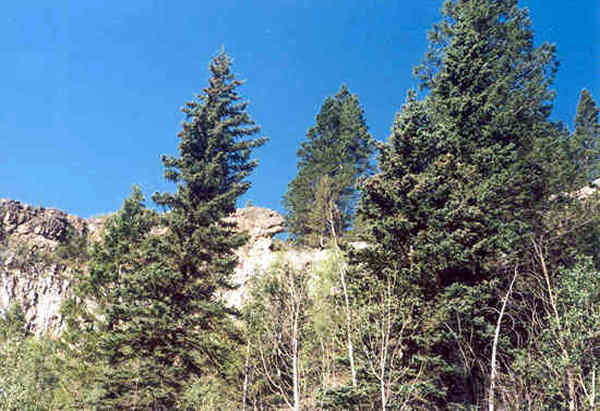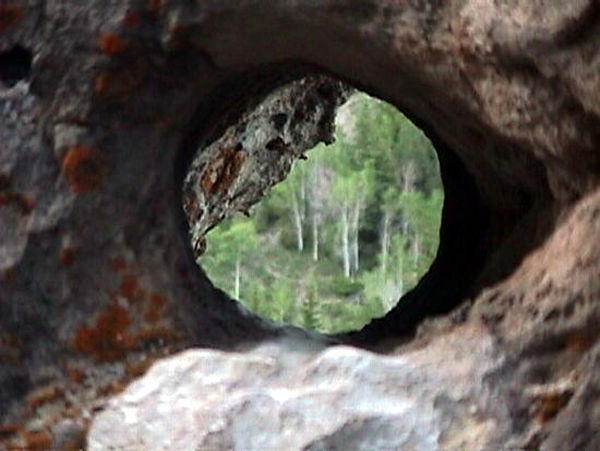-- Page 1--
Several authors believe the Spanish and later the Mexicans made monuments,
signs and others markers
to enable them to return to the same locations even after extended periods
of time.
Such authors include, but are not limited to Gale Rhoades, Charles Kenworthy
and Mike (Hawkeye) Pickett.
Some of the ideas I will discuss here can be documented from their books while
others are only my opinion.
Call it food for thought, if you will.
Those who knew the mines, whether in the 1700's, 1800's or later marked their
mines and treasures!
These markers are sometimes very obvious even to the untrained eye, while
at other times are less noticeable.
Non-the-less they did leave markers, signs, symbols and the like.
The first symbol I will talk about has been nicknamed the cat face by someone
other than myself.
The name seems to be very descriptive and has stuck. The cat face is very
common in the Uinta Mountains.
For the latest updates about catfaces click here: catfaces.
 |
This cat face is in the One of the newest catfaces It has been our Sometimes the mine depression can |
|
|
 |
There is an impressive variety of markers from simple blazes, such as slash
marks on trees,
to cat faces, to the elaborate rock monuments seen below.
 |
These monuments were designed to be seen from long distances and sometimes lead the searcher for miles.
Other markers were designed to be seen and deciphered at a much closer distance.
For example this marker can be seen from the road in Brownie's Canyon and
looks like a lizard's head.
 |
 |
I have always been skeptical that the Spanish made markers until I looked
through this hole which
has the appearance of having been chipped through this rock to resemble an
eye for the lizard.
 |
This rock formation is called Is this a coincidence? I don't think so. There are actually several
|
As you can see markers come in all shapes and sizes.
|
Out of all the symbols Several maps show it as |
 |
 |
 |
The scar on the pine tree next to my dad was 2.5 to 3 inches deep.
Keep in mind that according to individuals I have interviewed, the Mexicans
were working their mines in the Uinta Mountains into the early 1900's.
Which means these symbols could easily be from that era,
and were part of their map system.
It only makes sense that if indeed they had rich mines they would
make and leave markers so they could return to them.
I ponder that if from time to time new symbols and markers are showing up
are the Spanish
descendants coming back occasionally and checking on their mines and treasures.
I ask only that you consider the possibility these ideas could be true,
and as you explore this beautiful land to keep your eyes and minds open.